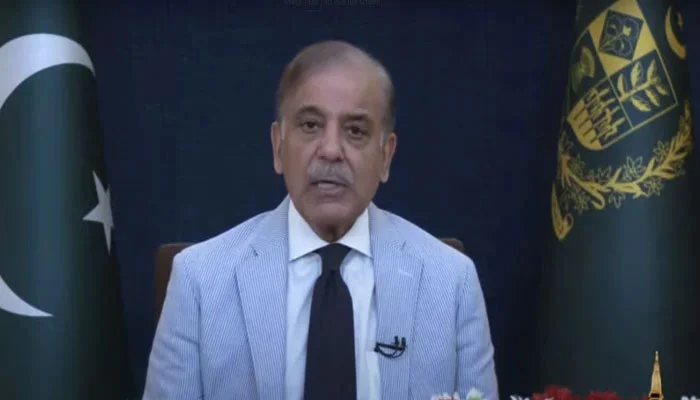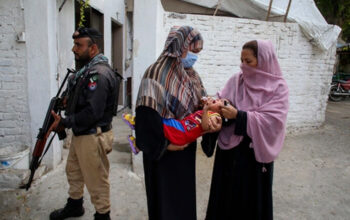By Staff Reporter
ISLAMABAD: Prime Minister Shehbaz Sharif said he will hand over power to a caretaker government in August, paving the way for national elections that could end the political turmoil that has gripped the country since the ouster of his predecessor Imran Khan last year.
“We will hand over the responsibility to the caretaker government in August 2023,” Sharif said in a televised address to the nation on Thursday.
Sharif, though, did not reveal when he would start consultations with the opposition leader to choose a caretaker prime minister, as required by the constitution. He also did not clarify whether the assembly would complete its full term or be dissolved earlier.
Sharif, who leads a coalition of 11 parties, took office in April 2022 after a parliamentary vote of no-confidence removed Khan, who has been demanding fresh polls ever since. His term ends in mid-August and the elections must be held within 60 to 90 days of the dissolution of the National Assembly, depending on when it is dissolved.
A caretaker set-up will supervise the polls, which are expected to be held later this year. The caretaker prime minister will be jointly chosen by Sharif and the opposition leader, or by a parliamentary committee or the Election Commission of Pakistan if they fail to agree. The election date will also be announced by the Election Commission.
Sharif’s announcement comes amid rumors that the caretaker set-up may stay longer than usual or include technocrats who may pursue unpopular reforms.
Observers say the choice of the caretaker prime minister will indicate the level of political consensus and stability in the country.
The elections will mark only the third time in Pakistan’s 76-year history that the National Assembly will complete its five-year term, though no prime minister has served out their full tenure in that time.
The South Asian nation has been ruled by the military for much of its post-independence history and still faces significant challenges such as high inflation, low growth, and rising borrowing costs.
The prime minister said his government had faced “challenges and conspiracies” from its political rivals but had managed to steer the country out of a deep crisis and put it on the right track.
Sharif said the economic situation had improved, with foreign exchange reserves increasing, business and investment confidence reviving, and international agencies upgrading Pakistan’s ratings and acknowledging its progress on human rights and transparency.
The premier said his government had resumed a stalled IMF program, avoided a default on its foreign debt, and secured financial support from friendly countries such as China, Saudi Arabia, and the United Arab Emirates.
Pakistan secured a last-minute $3 billion deal with the IMF this week to avoid a potential default after a previous $6.7 billion loan program expired unfinished.
“We cleaned the landmines laid in the way of Pakistan’s interests and doused the fire that erupted because of mismanagement, inefficiency, and conspiracy in running the affairs of the country, including the economy and foreign affairs,” he added.
Sharif said his government had sacrificed politics to protect the state and had not worried about its vote bank but about the country’s interests.
“This brief 1.5-year period was a journey from the darkness of hopelessness to the light of hope … it was the beginning of gaining something after losing everything … it was a journey of returning to development from anarchy and chaos,” he said.
Copyright © 2021 Independent Pakistan | All rights reserved




